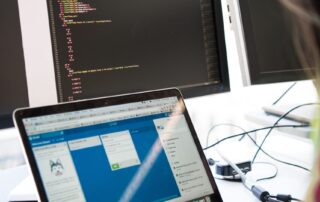COVID-19
The Rise of Discord Among Students During the COVID-19 Pandemic
Since the emergence of the COVID-19 pandemic roughly a year and a half ago, students have had to get creative to connect with others and make friends. Lockdowns, social distancing mandates, and the transition from in-person to mainly online schooling at various colleges and universities, including UWindsor, have precluded young people from socializing with their peers in person. However, Discord, the online chatting platform, seems to have afforded them a viable alternative. THE DISCORD ORIGIN STORY According to the company, Discord was originally created in 2015 as a platform where gamers could build communities and chat but has since attracted
All of the things I could’ve done…but probably wouldn’t have: A student’s reflection on COVID-19
by: Shaun Smith Five years ago, at my first orientation at the University of Windsor, older students that spoke with us echoed one thought: “I wish I’d become involved sooner.” The word “involved” means a lot of different things on a university campus. For some, it might be as simple as applying themselves properly in their studies and getting good grades. That’s how I, as a freshman, interpreted it. But it can also mean an entire world’s worth of things that a student entering university cannot yet comprehend. Over the course of my time in university, I played intramural sports,
Screens Seen as Potentially Dangerous, Addictive
by: Mitch Stewart That screen? The one you’re watching now. Or that other one, on your phone? Or the one you’ll watch later? It turns out mom was right, all these screens in modern life may really be rotting your brain. Researchers at University College London have proposed that excessive screen time can be a contributor to dementia in people over the age of 50. “Research suggests that television is a bit of unusual activity for the brain because you’ve got lots of bright and fast-moving images so your brain is very alert,” explained Dr. Fancourt from the UCL Institute
Richard Moon: UWindsor Law Professor and conspiracy aficionado
by: Rowan Dunne In a compelling interview regarding conspiracy theories and misinformation surrounding the COVID-19 pandemic on February 26th, I spoke with Richard Moon. Moon is a Law Professor at the University of Windsor and a renowned author on the subjects of freedom of expression, religious freedom, and conspiracy theories. He is also currently editor-in-chief of the Windsor Yearbook of Access to Justice. In September last year, Moon published a written piece in the Literary Review of Canada entitled Language Barrier: The life of a conspiracy theory. In this written segment he discussed the psychology behind the prominence of conspiracy
The New Home for Lancer Recreation: The Inside Scoop on the $73 million Project
by: Justin Peters Despite the delays, deferrals, postponements and cancellations the University community has faced as a result of the pandemic, construction on the Lancer Sport and Recreation Centre (LSRC) is well underway and could provide some much-needed optimism for students, staff and faculty. The inauguration of the $73 million athletic centre is set for spring 2022. The development of the LSRC experienced a 27-day delay at the start of the COVID-19 pandemic in March, but has since made up for the lost time and is expected to open its doors to the public in May of 2022, on schedule.
Growing up online: the detrimental impact on children
by: Mitch Stewart As the pandemic continues to keep us locked down, what’s the harm in a little extra screen time? “Just like using substances, it activates that same reward section in your brain,” said Sheri Ongena, a Registered Social Worker with Family Counselling and Support Services in Guelph, Ontario. “You literally become addicted to being on screens.” Ongena also has her own therapy practice, and her experience has taught her that many issues in younger people are often related to screen use. The World Health Organization recommends that kids under two should not have any screen time, and kids






